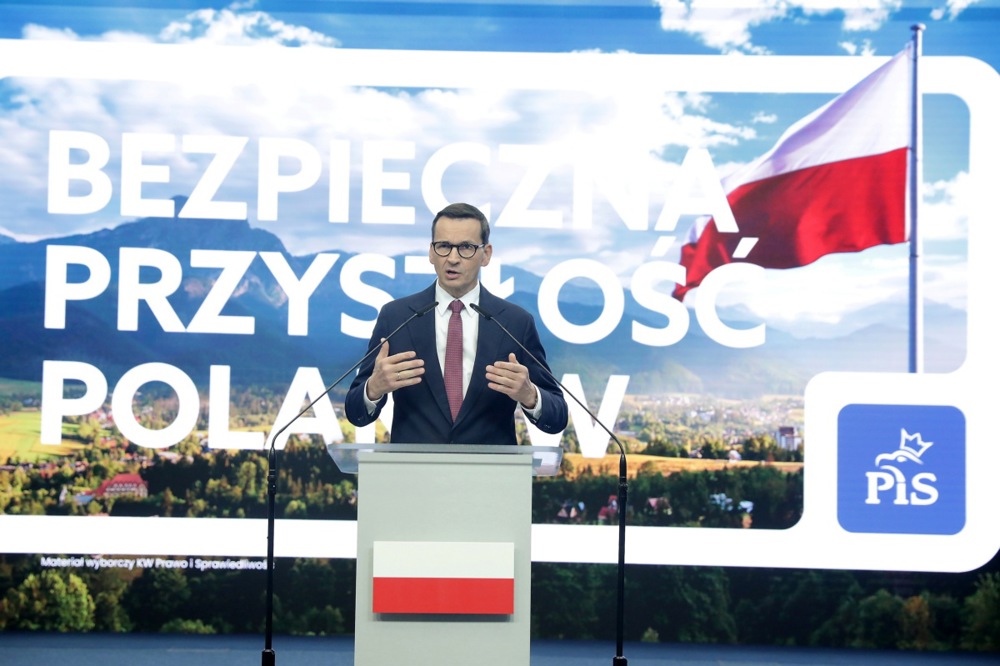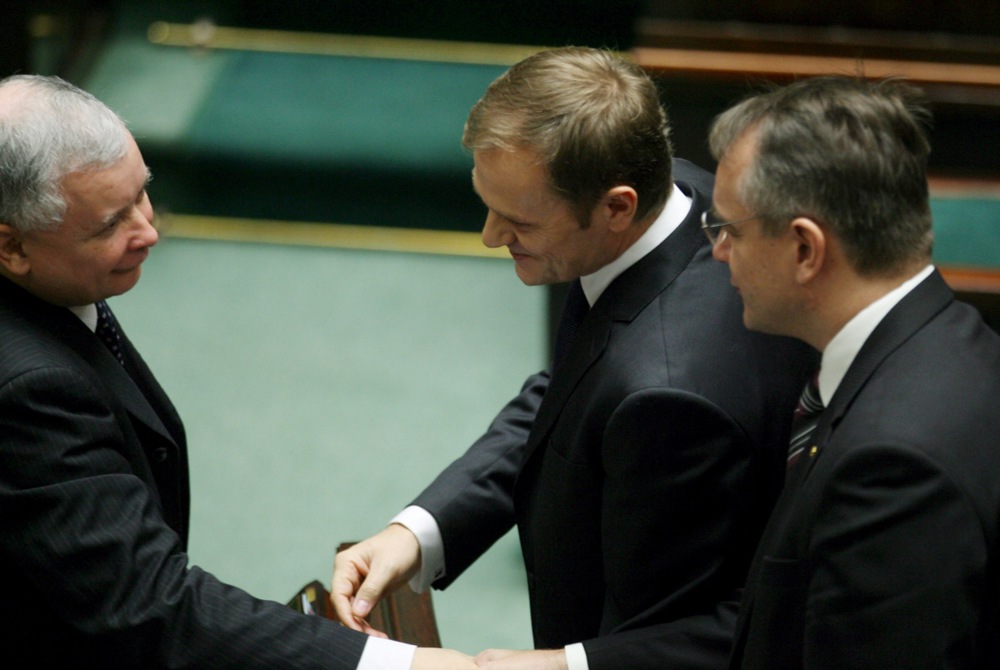The four political parties making up Poland’s incoming government signed a detail-light agreement permitting Donald Tusk to become prime minister.
The parties, with 248 of 460 seats in the new parliament, agreed the government will have two deputy prime ministers.
They will be Polish People’s Party (PSL) leader Władysław Kosiniak-Kamysz and the Left party’s Krzysztof Gawkowski. Donald Tusk’s Civic Coalition and Poland 2050 are the other two parties represented.
The coalition agreement does not include details about the government’s other ministers, or how the new government will share out responsibilities.
Missing from the agreement are election pledges by Tusk’s party to double the threshold for paying income tax and to abolish capital gains tax. Coalition partners have instead agreed to review public finances to determine where savings can be made.
The signed document promises major pay rises for teachers and the civil service, but Tusk’s party’s specific commitment to 20 per cent pay rises for public sector workers and 30 per cent for teachers does not feature in the agreement.
The agreement says the incoming government’s top priority is “security for all Poles”, with a foreign policy that “builds alliances with friends and which deters our enemies”.
It promises to “depoliticise and professionalise” Poland’s diplomatic service.
Both statements appear to signal personnel changes and a different approach to the EU from the previous PiS government.
It also promises a “return of the rule of law”, “courts free of political influence and independent apolitical prosecution service”, and reforms of the chief courts, though without further detail about these reforms.
There were no details about welfare benefits, or the Civic Coalition’s pledge to offer zero per cent interest rate mortgage loans to first-time buyers.
The coalition pledges to make the school curriculum “fitter and cleaner”, more focused on “inclusion and human rights” instead of just patriotism, and to reduce homework while increasing the number of psychologists in schools.
A section on women’s rights makes no mention of liberalising Poland’s controversial abortion law, instead only mentioning state funding for IVF treatment, more funding for nurseries, and improving women’s rights at work.
As Brussels Signal reported last week, the ruling coalition says it will introduce hate speech protections about sexual orientation and gender, but the agreement makes no mention of same-sex civil unions.
A new approach to nuclear energy seems to be suggested by a promised “coherent nuclear energy programme with means of financing identified”. There is also a promise to develop renewable energy sources.
One of these sources of funding for energy transformation lies in unblocking Poland’s share of EU post-pandemic funds, which have been held up for two years over a dispute over the last government’s judicial reforms.
The coalition also promises to reduce employers’ social security and reporting burdens.
In the public sector, it will introduce “transparent criteria” for senior management appointments to counter the “cronyism and nepotism” of which it accuses the outgoing government.
The new government says it will continue protecting Polish farmers from Ukrainian agricultural produce, and pledges more action on farm animal welfare, though without further details.
The new majority also promises to “depoliticise public media”, which it blames for “conducting a hate campaign” during the general election, but also without further detail.
There is also a promise of “separation of state and Catholic Church”, though without details of what that may mean for religious education in schools.
A provision on combating corruption is more concrete, promising to disband the state agency investigating corruption, and distribute its power to police and other state bodies.
Another chapter on holding the previous government to account is also more specific, saying office holders who violated the constitution, broke laws, engaged in hate speech, or wasted public money would be punished. Parliamentary investigative committees will be set up to examine the most ‘flagrant abuses’.
In a sign not all MPs are satisfied with the agreement, the small “Together” party, with six of the 26 MPs elected on the Left slate, announced no member of their party would join the government because the coalition agreement did not include their proposals on housing and abortion.
At the official signing ceremony today, the party leaders spoke of an ”historic moment” and “historic agreement” showing their determination to work together.
The coalition agreement came four days after President Andrzej Duda announced he would give sitting PM Mateusz Morawiecki first chance to form a government. Duda noted Morawiecki’s Conservative PiS had the largest number of seats in the poll of any single party, with 194 seats.
However even PiS now acknowledge Morawiecki faces an impossible mission in putting together a majority coalition, and PiS will move into opposition.





